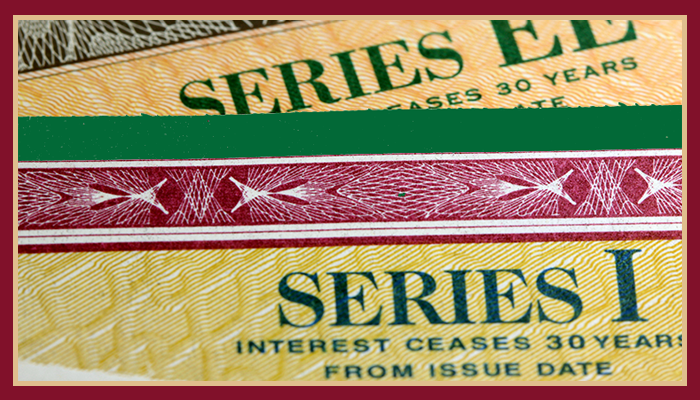


I received a very good question recently from a PlanStrongerTV™ viewer. It’s a subject we haven’t spent much time talking about, but if you own savings bonds, you might be wondering about this topic, just like “Theodore Wood” (name changed). Theodore’s question is summarized below:
Question: I am age 77, and my wife is age 81. We have $85,000 in savings bonds, most of which have matured. Should I cash these in and pay the taxes, or just leave them alone?
First, for readers who are unfamiliar with savings bonds, they are securities issued by the U.S. Treasury. Some of the most commonly held bonds are E Bonds, EE Bonds and I Bonds. Introduced in 1941, E Bonds have stopped earning interest as of 2010. They were issued at 75% of their face value, which means, if you bought a $100 E Bond, you only paid $75 at the time of purchase. EE Bonds are currently sold at their face value, and as of May 2005, earn a fixed rate of return. I Bonds are issued at face value and earn a combined rate, made up of a “fixed rate” (at purchase) and an “inflation rate” based on the CPI-U. Both EE Bonds and I Bonds earn interest for up to 30 years, at which point they “mature.”
So, back to the question. The answer is, “Theodore, it all depends.” Do you need the money, or do you think you may leave it as an inheritance to your heir(s)? If you need the money, the interest will be taxable (i.e. federal income taxes, but not state or local) when you cash in the bonds. Now, nothing requires you to cash in all your bonds at one time. You can certainly spread out the process over a few years (or more). If you plan to leave the money to your heir(s), you might want to contemplate the tax implications even more carefully. Who will have the lower tax rate when the bonds are cashed in, you or your heir(s)? To make sure the most money is retained, the person with the lower tax rate should probably be the one to cash in the bonds.
With up to 30 years to accumulate interest, bonds make a great gift for a newborn baby or young child. Some of the “perks” of bonds, include: 1. They are a conservative investment; 2. They are easy to purchase; and 3. You don’t pay tax on them until you cash them in. Remember, though, “risk and reward” travel together. Because EE and I Bonds are low-risk, their interest rates are also low, relative to other investment choices.
My source for some of the information here was savingsbonds.gov. The website offers a plethora of interesting information, and, if you own savings bonds, there is even a calculator to estimate their current worth. Thank you, “Theodore” for the question!
Have a financial question you'd like answered here? Email: Questions@PlanStronger.com